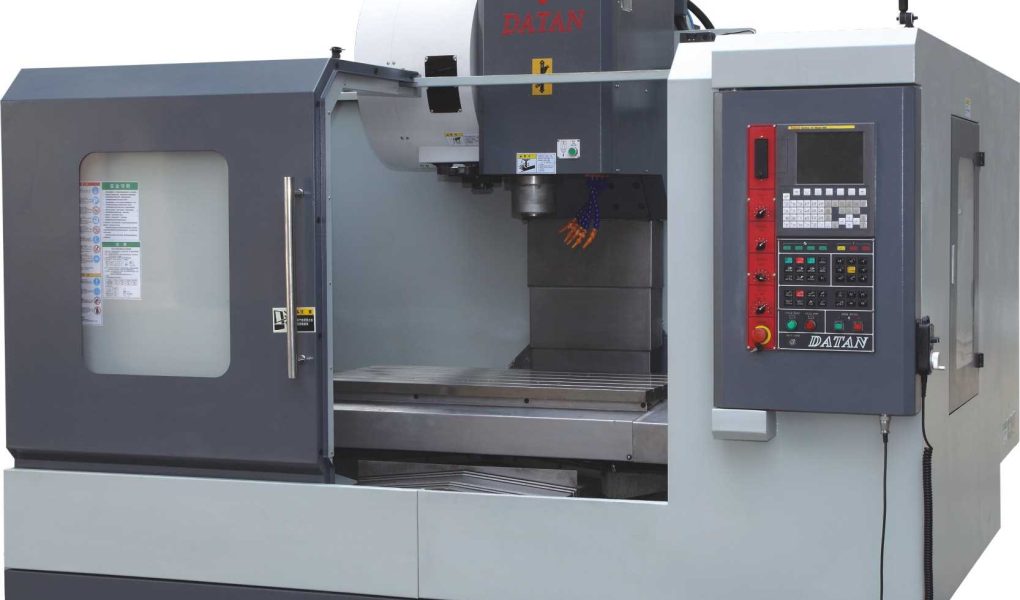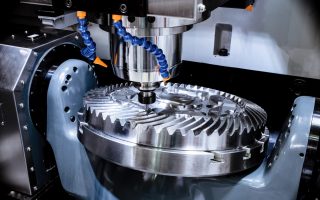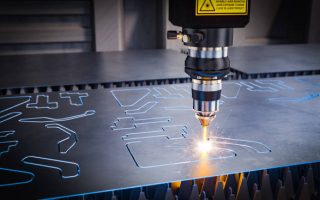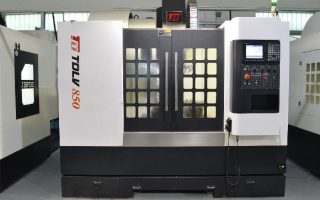
Introduction to CNC Machines and CNC Mills
CNC (Computer Numerical Control) technology has revolutionized the manufacturing industry by automating machining processes, increasing precision, and improving efficiency. However, within the realm of CNC technology, there are various types of machines designed for specific purposes. Two terms that often come up in discussions are “CNC machine” and “CNC mill.” While these terms are sometimes used interchangeably, they refer to different categories of equipment. Understanding the distinction between a CNC machine and a CNC mill is crucial for anyone involved in manufacturing, engineering, or machining.
In this comprehensive guide, we will explore the key differences between CNC machines and CNC mills, their unique functionalities, and their applications. We will also delve into their advantages, limitations, and how to choose the right equipment for your specific needs.
What is a CNC Machine?
A CNC machine is a broad term that encompasses any machine tool that is controlled by a computer using numerical code. CNC machines automate the operation of tools such as drills, lathes, grinders, and mills. The computer interprets a set of instructions (often written in G-code) to control the movement of the machine’s components, such as spindles, cutting tools, and workpieces. This automation allows for high precision, repeatability, and efficiency in manufacturing processes.
CNC machines come in various types, each designed for specific tasks. Common types of CNC machines include:
1. CNC Lathes
CNC lathes are used for turning operations, where the workpiece rotates while a stationary cutting tool removes material. These machines are ideal for creating cylindrical or symmetrical parts such as shafts, bushings, and pulleys.
2. CNC Mills
CNC mills are designed for milling operations, where a rotating cutting tool removes material from a stationary workpiece. These machines are versatile and can perform a wide range of tasks, including drilling, tapping, and contouring.
3. CNC Routers
CNC routers are similar to CNC mills but are typically used for cutting softer materials such as wood, plastic, and foam. They are commonly used in industries like furniture making and sign manufacturing.
4. CNC Plasma Cutters
CNC plasma cutters use a high-temperature plasma torch to cut through electrically conductive materials like steel and aluminum. These machines are often used in metal fabrication and automotive industries.
5. CNC Grinders
CNC grinders are used for grinding operations, where an abrasive wheel removes material to achieve a smooth surface finish or precise dimensions. These machines are commonly used in tool and die making.
As you can see, the term “CNC machine” is a catch-all phrase that includes a wide variety of equipment. Each type of CNC machine is tailored to specific machining processes and materials.
What is a CNC Mill?
A CNC mill is a specific type of CNC machine that is designed for milling operations. Milling is a machining process that involves the use of a rotating cutting tool to remove material from a stationary workpiece. CNC mills are highly versatile and can perform a variety of tasks, including:
- Drilling
- Tapping
- Slotting
- Contouring
- Engraving
CNC mills are characterized by their ability to move the cutting tool along multiple axes. Most CNC mills operate on three axes (X, Y, and Z), but advanced models can operate on four, five, or even more axes. This multi-axis capability allows CNC mills to create complex geometries and intricate designs with high precision.
CNC mills are commonly used in industries such as aerospace, automotive, medical, and electronics manufacturing. They are ideal for producing parts with tight tolerances and intricate details.
Key Differences Between CNC Machines and CNC Mills
Now that we have a basic understanding of CNC machines and CNC mills, let’s explore the key differences between the two:
1. Scope of Definition
The term “CNC machine” is a broad category that includes all types of computer-controlled machines, such as lathes, mills, routers, and grinders. In contrast, a “CNC mill” refers specifically to a type of CNC machine designed for milling operations. In other words, all CNC mills are CNC machines, but not all CNC machines are CNC mills.
2. Functionality
CNC machines encompass a wide range of functionalities, depending on the type of machine. For example, CNC lathes are used for turning, CNC plasma cutters are used for cutting, and CNC grinders are used for grinding. CNC mills, on the other hand, are specifically designed for milling operations, which involve the removal of material using a rotating cutting tool.
3. Applications
CNC machines are used in a variety of industries and applications, depending on the type of machine. For example, CNC routers are commonly used in woodworking, while CNC plasma cutters are used in metal fabrication. CNC mills are primarily used in industries that require high precision and intricate designs, such as aerospace, automotive, and medical manufacturing.
4. Complexity
CNC mills are often more complex than other types of CNC machines because they can operate on multiple axes. While most CNC mills operate on three axes (X, Y, and Z), advanced models can operate on four, five, or more axes. This multi-axis capability allows CNC mills to create complex geometries and intricate designs that are not possible with simpler CNC machines.
5. Cost
CNC mills are generally more expensive than other types of CNC machines due to their complexity and versatility. However, the cost of a CNC machine depends on various factors, including the type of machine, its size, and its capabilities.
Advantages and Limitations of CNC Machines and CNC Mills
Advantages of CNC Machines
CNC machines offer several advantages, including:
- High precision and repeatability
- Increased efficiency and productivity
- Reduced human error
- Ability to produce complex geometries
- Automation of repetitive tasks
Limitations of CNC Machines
Despite their advantages, CNC machines have some limitations, such as:
- High initial cost
- Requires skilled operators and programmers
- Maintenance and repair can be expensive
- Not suitable for small-scale production
Advantages of CNC Mills
CNC mills offer additional advantages, including:
- Versatility in performing various machining operations
- Ability to create intricate designs and complex geometries
- High precision and tight tolerances
- Multi-axis capability for advanced machining
Limitations of CNC Mills
The limitations of CNC mills include:
- Higher cost compared to simpler CNC machines
- Requires more programming and setup time
- Limited to milling operations
How to Choose Between a CNC Machine and a CNC Mill
Choosing between a CNC machine and a CNC mill depends on your specific needs and applications. Here are some factors to consider:
1. Type of Operation
If you need a machine for milling operations, a CNC mill is the obvious choice. However, if you require other types of machining, such as turning or cutting, you may need a different type of CNC machine.
2. Material
Consider the type of material you will be working with. CNC mills are suitable for a wide range of materials, including metals, plastics, and composites. However, if you are working with softer materials like wood or foam, a CNC router may be more appropriate.
3. Complexity of Design
If your designs require intricate details and complex geometries, a CNC mill with multi-axis capability is the best choice. For simpler designs, other types of CNC machines may suffice.
4. Budget
CNC mills are generally more expensive than other types of CNC machines. Consider your budget and weigh the cost against the capabilities you need.
Conclusion
In summary, the main difference between a CNC machine and a CNC mill lies in their scope and functionality. A CNC machine is a broad category that includes various types of computer-controlled equipment, while a CNC mill is a specific type of CNC machine designed for milling operations. Understanding these differences will help you choose the right equipment for your manufacturing needs.
Both CNC machines and CNC mills offer significant advantages in terms of precision, efficiency, and versatility. By considering factors such as the type of operation, material, complexity of design, and budget, you can make an informed decision and optimize your machining processes.




